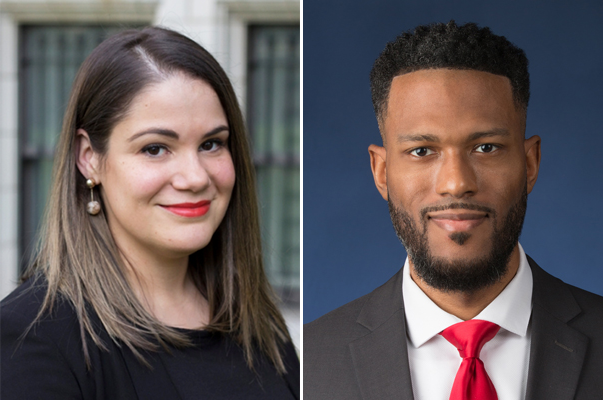Downstate Leads National Efforts to End Helicopter Research
By Office of the President | Oct 16, 2024

Downstate published a significant study, Ending Domestic Helicopter Research, in Cell Press earlier this year. The study, led by W. Marcus Lambert, Ph.D., Downstate’s Associate Vice President for Research Strategy and Operations; Marlene Camacho-Rivera, Sc.D., M.S., MPH, Assistant Dean for Student Affairs, School of Public Health; Carla Boutin-Foster, M.D, MSc., Associate Dean, Office of Diversity Education and Research; Moro O. Salifu, M.D., MBA, MPH, MACP, Chair, Department of Medicine; and I examined the detrimental impacts of domestic helicopter research. This practice occurs when researchers from more privileged institutions conduct studies in marginalized U.S. communities, often without involving local researchers or community members.
On August 29, 2024, Downstate presented our groundbreaking work on this issue to key NIH audiences, including the National Institute of Neurological Disorders and Stroke (NINDS) Diversity Workforce Work Group and the Health Disparities Work Group. Dr. Lambert and Dr. Camacho-Rivera led the presentation attended by NINDS Director Walter J. Koroshetz, M.D., and Richard Benson, M.D., Ph.D., Director, Office of Global Health and Health Disparities. The session, Ending Domestic Helicopter Research: Strategies for Equity-Centered Collaborations, focused on addressing inequities in research partnerships and emphasized the importance of sustainable, community-driven collaborations.
Dr. Lambert opened the discussion by explaining the exploitative nature of domestic helicopter research, outlining the practice of researchers from privileged institutions conducting studies in marginalized communities with minimal to no local involvement. This research paradigm disproportionately affects communities such as Indigenous Peoples, Black and Latine groups, as well as resource-limited institutions (RLIs), which receive less than $50M annually from the NIH.
Dr. Camacho-Rivera shared strategies to foster equitable research partnerships. The strategy emphasized the need for multilevel solutions and a shared commitment from investigators from both RLIs and privileged institutions, community members, the broader scientific community, and funding agencies. The presentation was very well received, especially by Dr. Koroshetz, who shared a personal connection to Brooklyn, as his father trained at Kings County Hospital and studied in the Downstate library.
This event was built on Downstate’s commitment to health equity, strengthened by a $10M John Lewis NIMHD Research Endowment Grant from NIH in 2023. This grant allowed Downstate to expand its research training programs and launch initiatives to address health inequities in Brooklyn.
Following the success of our August presentation, our advocacy efforts progressed with a productive meeting involving leadership from the National Institute of Arthritis and Musculoskeletal and Skin Diseases (NIAMS). This meeting included the Deputy Director, Chief Diversity Officer, and other senior officials. These continued discussions highlight our commitment to advancing research practices that prioritize equity and foster meaningful community engagement.
Tags: Research